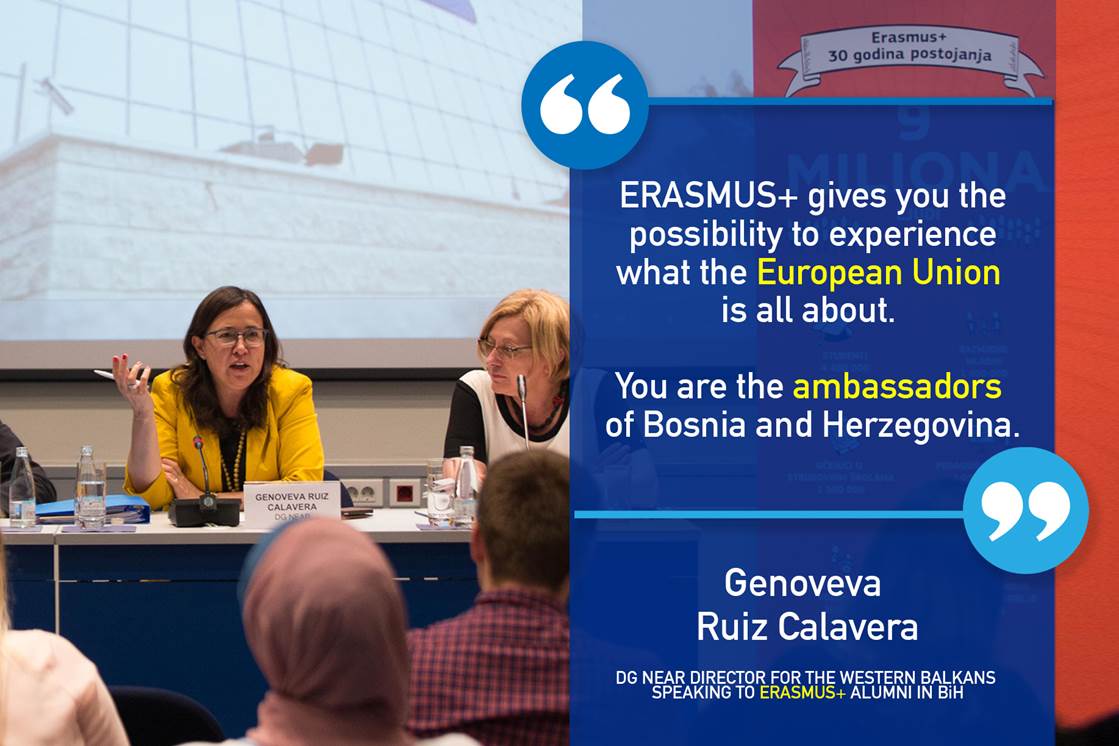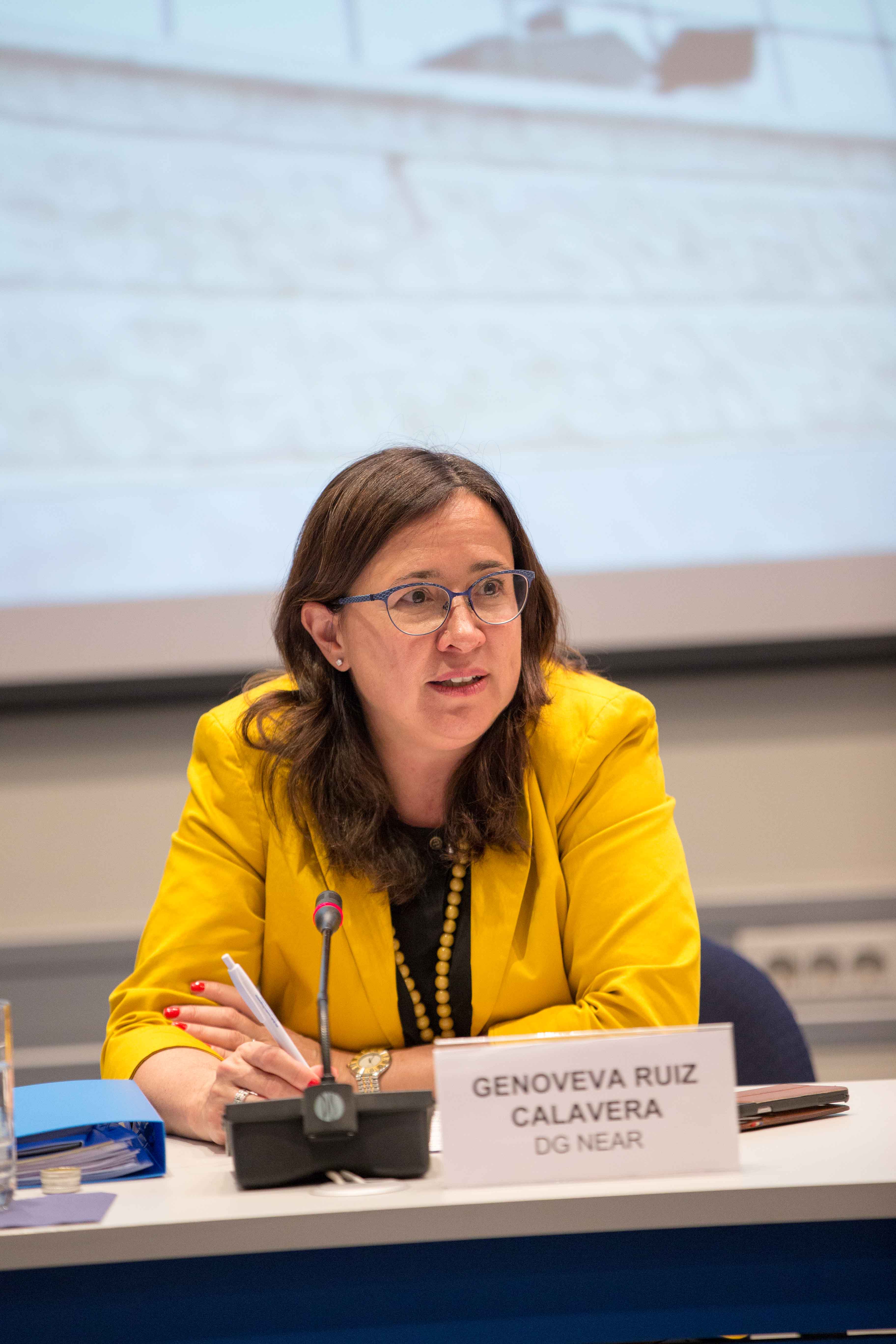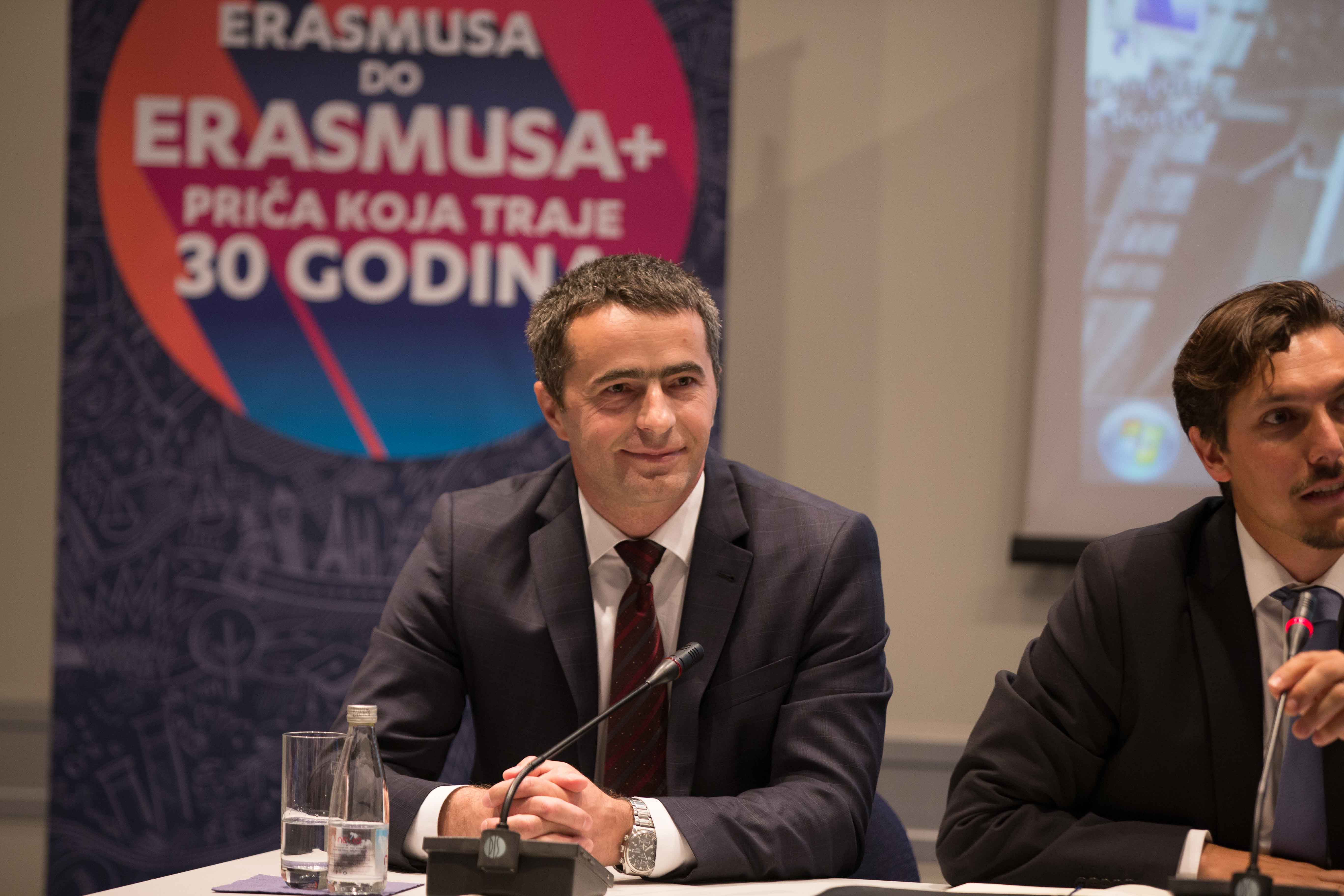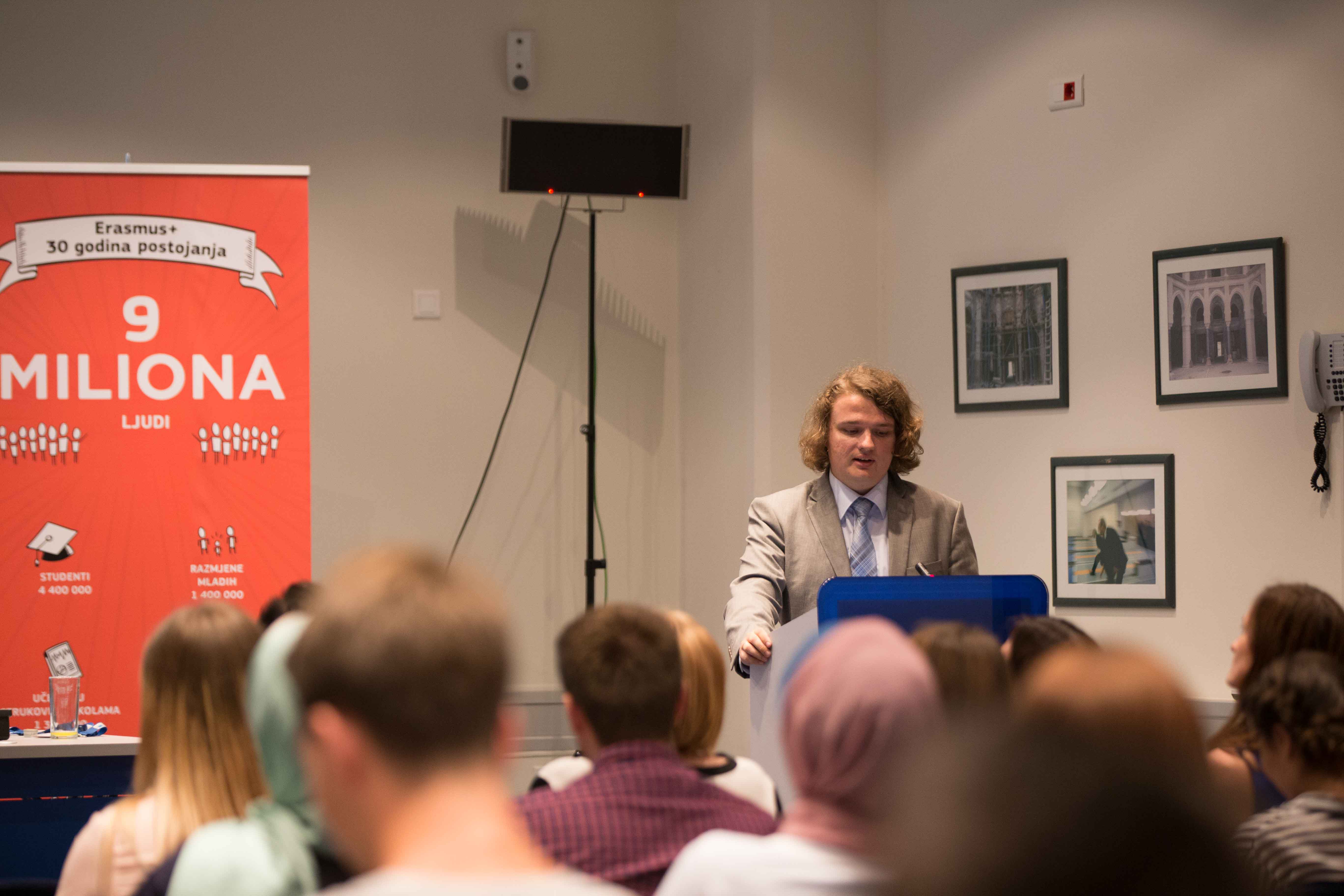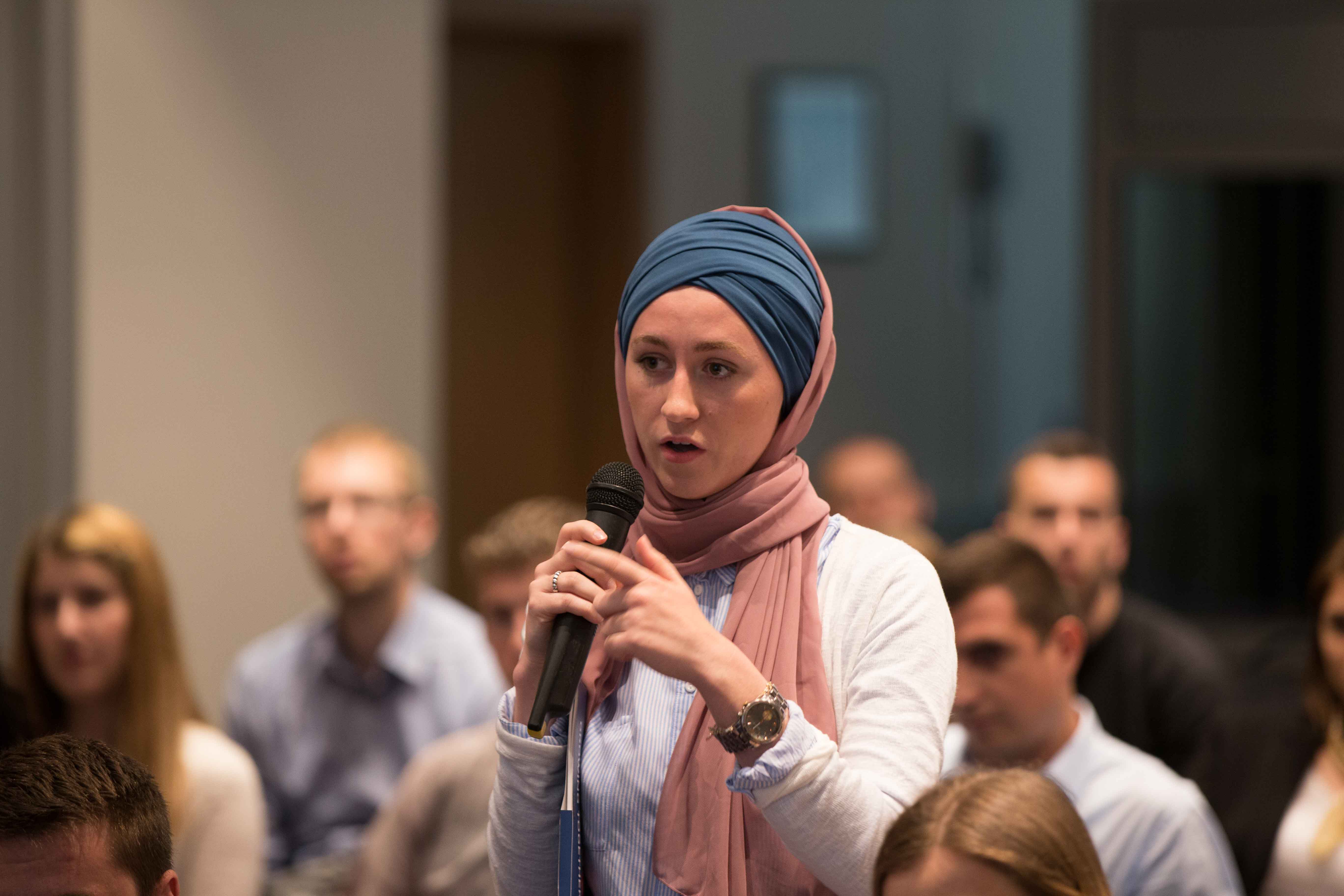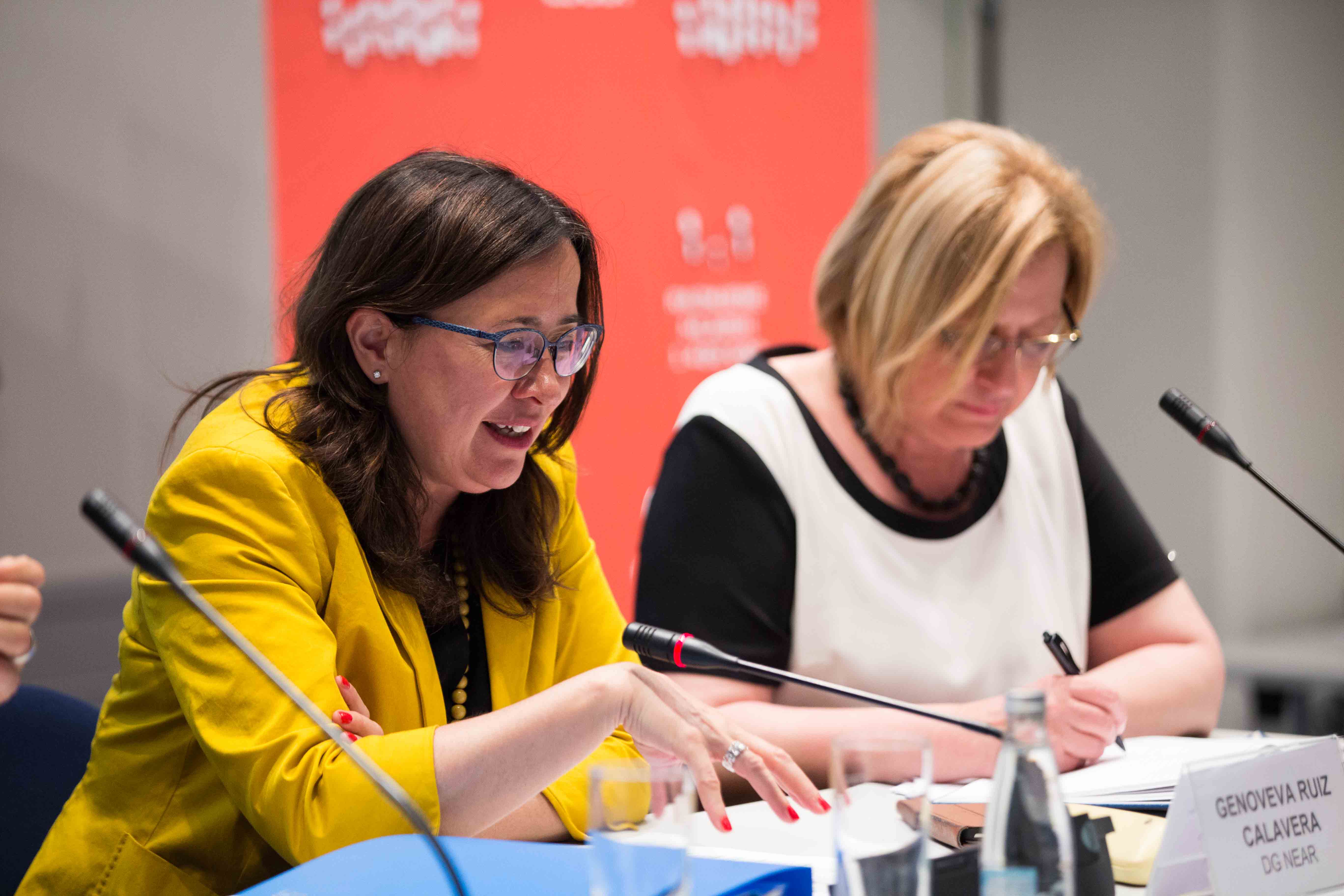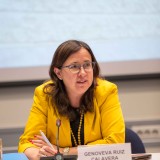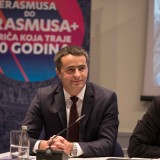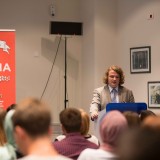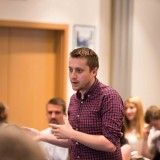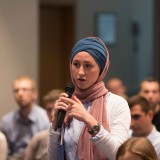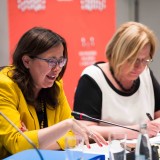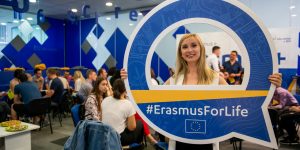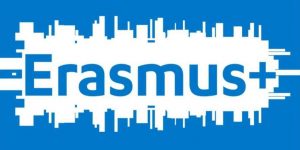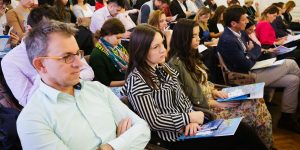Members of the Initiative for a Regional Alumni Association of the Western Balkans in cooperation with the EU Delegation/EUSR in BiH, the Erasmus Student Network, and representatives of Erasmus Mundus associations in BiH, organised the first joint meeting for Erasmus alumni in BiH, on the occasion of the visit of the Director for the Western Balkans at the European Commission Directorate-General for European Neighbourhood Policy and Enlargement Negotiations Genoveva Ruiz Calavera to Bosnia and Herzegovina on 1 June.
The event was held at the EU House in Sarajevo and included a working meeting of 50 Erasmus alumni. Participants from cities across BiH (Banja Luka, Bihać, Bijeljina, Istočno Sarajevo, Sarajevo, Mostar, Travnik, Tuzla and Zenica) had the opportunity to talk about the most common challenges they have faced, and the role and contribution of alumni in addressing these challenges.
“Erasmus+ offers you possibility to experience what EU is all about. It is this beauty of diversity that makes us much stronger. Erasmus + is the biggest success story of the EU, and I am very happy to see that you are ambassadors of Bosnia and Herzegovina and that you have strong aspirations to become part of the European Union,” Director Ruiz Calavera told the almuni.
Ruiz Calavera stressed that Western Balkan countries are full of opportunities, and that all countries share a common goal of becoming a part of a community of values. “I am very happy and honoured to be here with you, and I hope that with mutual efforts, this country will move forward and reach its final destination”, concluded Ruiz Calavera.
Director of the National Erasmus+ Office Suad Muhibić said that the main goal of this project is to help high level domestic institutions working with students, and that Erasmus + is the best way to promote European values and differences.
ERASMUS+ alumni student Dragan Brković presented the most common challenges faced during and after their studies, and the role and contribution of alumni in addressing mentioned problems.
“The biggest challenges that we face include the study-to-work transition, the student representation and engagement, and as well the quality assurance and comparability of the higher education system. When talking about potential solutions, we are planning to develop a communication platform where all interested Erasmus alumni could communicate with each other and continue their work on,” Brković said.
The goal of the platform is to ensure communication and cooperation with universities and governments in order to become an important stakeholder in the modernisation of education.
It is notable that as a result of only 2 generations of Erasmus+ projects of international credit mobility, more than 800 students from Bosnia and Herzegovina will have the opportunity to study at the Erasmus + programme countries. The meeting highlighted that Erasmus alumni should have a stronger voice in the processes of modernisation of higher education, with the aim of strengthening links between higher education and the labour market, which would ultimately contribute to employability of graduates.

